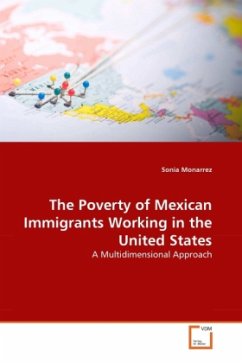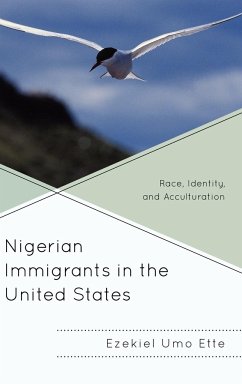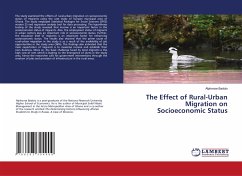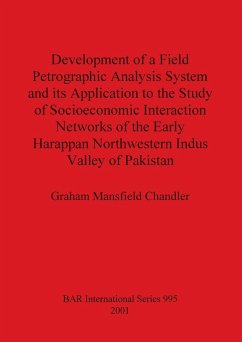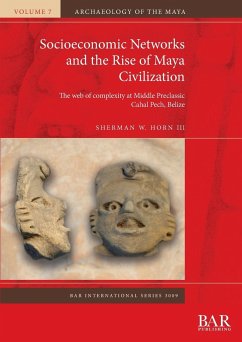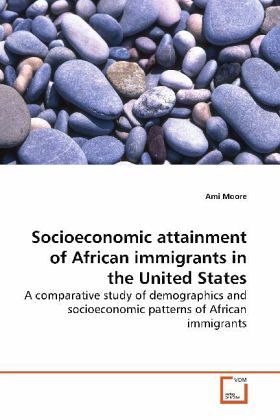
Socioeconomic attainment of African immigrants in the United States
A comparative study of demographics and socioeconomic patterns of African immigrants
Versandkostenfrei!
Versandfertig in 6-10 Tagen
45,99 €
inkl. MwSt.

PAYBACK Punkte
23 °P sammeln!
The diversity of immigrants to the United States in recent years has attracted the attention of many scholars. Several studies have focused specifically on the socioeconomic success of black African male immigrants. However, there are few studies on the economic success of white African men or white and black African women even though both constitute important segments of immigrants. This study was an attempt to provide an understanding of the economic success of white and black African immigrants in the United States. The study used data drawn from the 1990 U.S. Census of Population. The obje...
The diversity of immigrants to the United States in
recent years has attracted the attention of many
scholars. Several studies have focused specifically
on the socioeconomic success of black African male
immigrants. However, there are few studies on the
economic success of white African men or white and
black African women even though both constitute
important segments of immigrants. This study was an
attempt to provide an understanding of the economic
success of white and black African immigrants in the
United States. The study used data drawn from the
1990 U.S. Census of Population. The objectives of
the study were to (i) examine the demographics of
Africans in the U.S., (ii) study the process of
earnings of African immigrants from countries with
English proficiency and countries with no English
proficiency, (iii) study the race and place-of-birth
inequality in earnings, (iv) suggest appropriate
public policies aimed at reducing the earnings
inequality and helping the adjustment of African
immigrants in the United States.
recent years has attracted the attention of many
scholars. Several studies have focused specifically
on the socioeconomic success of black African male
immigrants. However, there are few studies on the
economic success of white African men or white and
black African women even though both constitute
important segments of immigrants. This study was an
attempt to provide an understanding of the economic
success of white and black African immigrants in the
United States. The study used data drawn from the
1990 U.S. Census of Population. The objectives of
the study were to (i) examine the demographics of
Africans in the U.S., (ii) study the process of
earnings of African immigrants from countries with
English proficiency and countries with no English
proficiency, (iii) study the race and place-of-birth
inequality in earnings, (iv) suggest appropriate
public policies aimed at reducing the earnings
inequality and helping the adjustment of African
immigrants in the United States.




